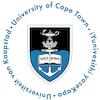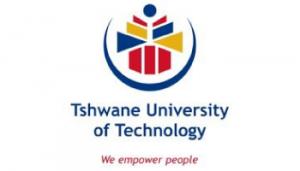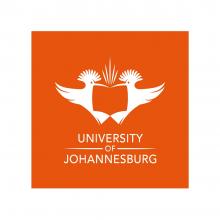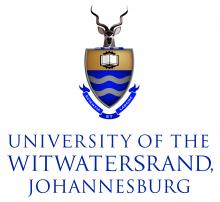
The postgraduate Diploma in Tourism Management in the School of Management Studies at the University of Cape Town recognises that rapid global change is increasing demands for highly skilled managers in the tourism industry.
The Diploma in Tourism Management programme, which is the first and only such programme in South Africa, has been designed to prepare students for a career in the ever-changing tourism industry. The course affords students the opportunity the build upon previous undergraduate qualifications and experience by expanding knowledge in key academic fields such as marketing, business, and information technology. Former students of the Diploma in Tourism Management programme occupy positions of seniority in both public and private sectors in South Africa and overseas.
The Diploma in Tourism Management programme is vocational and provides generally educated graduates with a combination of general business management skills and specialised knowledge of the tourism industry. The postgraduate diploma in tourism management meets the educational requirements of future managers and executives.
Diploma in Tourism Management programme content
The Diploma in Tourism Management programme attracts graduates from a wide variety of undergraduate faculties and universities. Learning is focused on acquiring both general and specific skills. The first semester is spent acquiring a solid grounding in good business practice (finance, marketing and corporate finance) while exploring the industry of tourism. During the second half of the year, the focus is on courses that have been developed specifically for the tourism industry, such as marketing research methods, responsible tourism, events management, information systems management, and financial controls for the tourism industry. Students also attend a course in communications and career development.
During the second semester, students are also required to take an elective in one of the following specialist modules:
Hospitality Management
Transport for Tourism
A six-week internship programme is a core feature of the Diploma in Tourism Management, which has been developed with key players in the industry in South Africa. Students have been posted at tourism departments in local government through to working in marketing departments of large private tourism organisations.
The successful completion of a 250 hour long internship
with an organisation affiliated to the diploma is required in addition to successful completion of the coursework as a requirement for the award of the diploma. The elective and internship that each student selects should be focused on the same area.
Tourism Management careers
Successful graduates have been successful in gaining employment in both public and private sectors in South Africa and overseas. Many now occupy positions of seniority, including senior officials with national and local tourism organisations such as the Department of Environmental Affairs and Tourism (DEAT), executives and managers with airlines, hotels, tour operations, NGOs (such as Open Africa) and visitor attractions and in education.
The two-year Honours/Masters Programme in Financial Management at University of Cape Town (UCT) incorporates coursework undertaken as part of the BCom (Hons) programme in Financial Management. Candidates normally complete the thesis in the second year of study. Permission to convert the BCom (Hons) in Financial Management registration to a Masters programme is dependent of the level of the student s performance in the first year of coursework.
The programme aims to prepare students for executive positions in financial management. The Masters Programme in Financial Management also provides candidates with the ability to undertake independent and original research in a South African context.
Masters in Financial Management Overview
The focus in the first year is to apply financial theory in a real world setting. The coursework is structured on the basis of case studies of actual companies. In addition, students undertake projects applying corporate finance theory to South African companies and financial markets.
The focus in the second year is to complete a research thesis. Students are expected to undertake independent and original research project in a South African context. Participants are subject to supervision by a UCT staff member and are expected to undertake the research project in the area of financial management.
The Bachelor of Social Sciences programme at University of Cape Town is a three year programme which enables registration with the South African Council for Social Service Professions (SACSSP) as a Social Auxiliary Worker.
In addition to the mentioned 3-year degree, one of four honours degrees offered by the department is required for registration as a professional Social Worker with the SACSSP.
The Social Sciences coursework master s programmes are offered in the four fields of study offered at the honours level and are offered on a part-time basis over two years at the University of Cape Town.
The degree consists of four theory modules offered in the first year and a dissertation and an internship in the second year of study.
Lectures are offered during early evenings to accommodate employed students.
The University of Cape Town offers a one-year full-time honours programme in the following areas:
Clinical Practice in Social Work
Probation and Correctional Practice
Social Development
Social Policy and Management.
The degree consists of four theory modules and a practice research report.
Theory courses are offered in a concentrated teaching block at the beginning of the year and in one at midyear.
The doctoral degree programme in Social Work at the University of Cape Town is research-based and caters to a wide range of topics.
Examination is by thesis alone, which should not exceed 80,000 words.
The University of Cape Town offer a 4-year undergraduate degree programme in social work. This enables registration with the SACSSP as a professional social worker.
The MBA programme at University of Cape Town is offered either as a traditional full-time, part-time or modular programme, or in a modular format for senior managers (the Executive MBA).
The traditional MBA programme gives students the resources they need to gain a competitive advantage both locally and internationally. The programme offers an international curriculum with a distinctive orientation to a (South) African context and a strong practical emphasis. The MBA programme at University of Cape Town is developing new streams of learning around communication, leadership and entrepreneurship in addition to the functional aspects of business. A relentless commitment to producing courses that meet market needs and international standards ensures that the content of the MBA programme at University of Cape Town is always relevant and challenging.
University of Cape Town offers this MBA course in three forms: full-time, part-time and modular.
The part-time and modular MBA programmes cover the same curriculum as the full-time programme but are placed to suit the needs of working students. students attend lectures and group work in the evening and on Saturdays except for two full-timeblocks at the beginning and middle of the first year, part-time.
Students on the modular MBA programme attend three two-week blocks each year for two years at the Graduate School of Business and are set assignments to complete in the between-module periods.
The Executive MBA is the only programme of its kind in South Africa, and is a modular programme over two years, targetted at senior and executive managers and leaders who want to move their careers and lives to another level. The course uses sophisticated learning techniques that are far removed from classic pedagogic methods. Participants are taught to develop their critical thanking and decision making abilities and their capacity to function in complex organisational and social environments.
The Master of Medicine (MMed) programme at University of Cape Town trains medical doctors to become specialists in one of a variety of disciplines.
The Master of Medicine programme takes place over a minimum period of four years, full-time, and in some cases more, to allow the student to complete the dissertation.
In order to have the training recognised in South Africa, MMed students at University of Cape Town must have full registration with the Health Professions Council of South Africa. Students must also be appointed against HPCSA-approved training numbers which the HPCSA allocates to the Faculty and against which the Faculty appoints selected students.
Master of Medicine Specialities:
Training is offered in the following branches of medical practice:
Anaesthesia
Cardiothoracic Surgery
Clinical Pharmacology
Dermatology
Emergency Medicine
Family Medicine
Medical Genetics
Neurology
Neurosurgery
Nuclear Medicine
Obstetrics & Gynaecology
Occupational Medicine
Ophthalmology
Orthopaedic Surgery
Otorhinolaryngology
Paediatric Surgery;
Paediatrics
in a range of Pathology disciplines (Anatomical, Chemical, Clinical, Forensic, Haematological, Microbiological and Virological)
Plastic & Reconstructive Surgery
Psychiatry.
The Master of Medicine (MMed) in Public Health Medicine programme at University of Cape Town trains medical doctors to become specialists in Public Health Medicine.
The Master of Medicine in Public Health Medicine programme takes place over a minimum period of four years, full-time, and in some cases more, to allow the student to complete the dissertation.
In order to have the training recognised in South Africa, MMed students at University of Cape Town must have full registration with the Health Professions Council of South Africa. Students must also be appointed against HPCSA-approved training numbers which the HPCSA allocates to the Faculty and against which the Faculty appoints selected students.
Master of Medicine in Public Health Medicine Course Topics:
Health measurement and informatics
Social sciences
Occupational health
Communicable diseases
Non-communicable diseases
Environmental health
Organisation, development and management of healthcare
Dissertation
The exam consists of three parts. The examination in each of Parts 1 and 2 consists of one or more written paper/s together with such practical and/or oral examination/s as may be required by the specific discipline. The examination in Part 3 consists of a dissertation.
The dissertation must be on a topic in the same branch of the medical speciality in which the candidate is registered and must be based on a study for which the work was commenced while the candidate was registered as a postgraduate student.

 (1 votes)
(1 votes)


